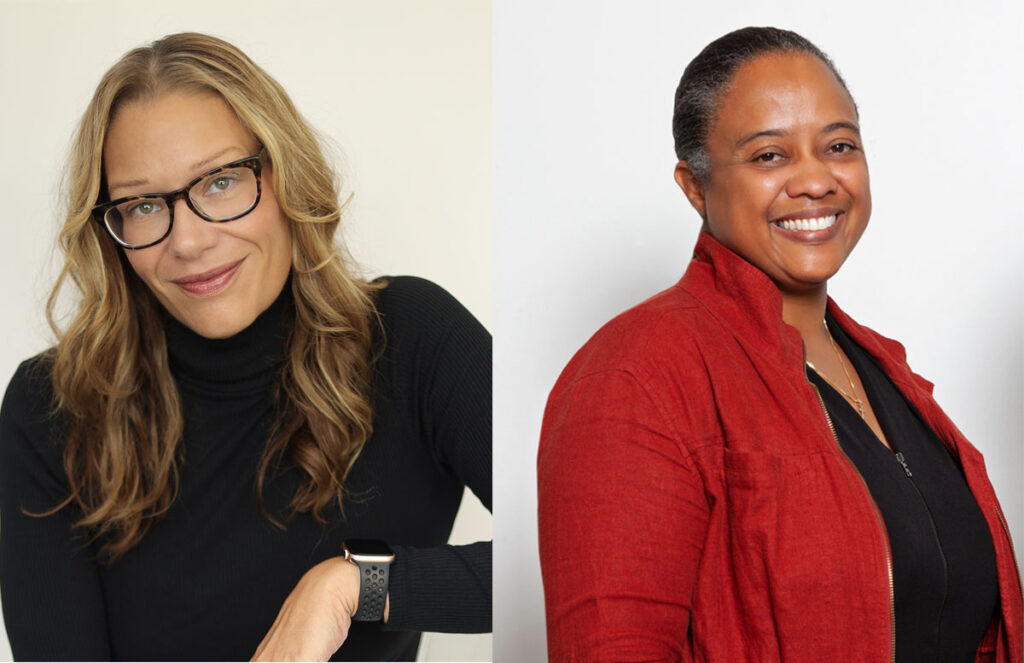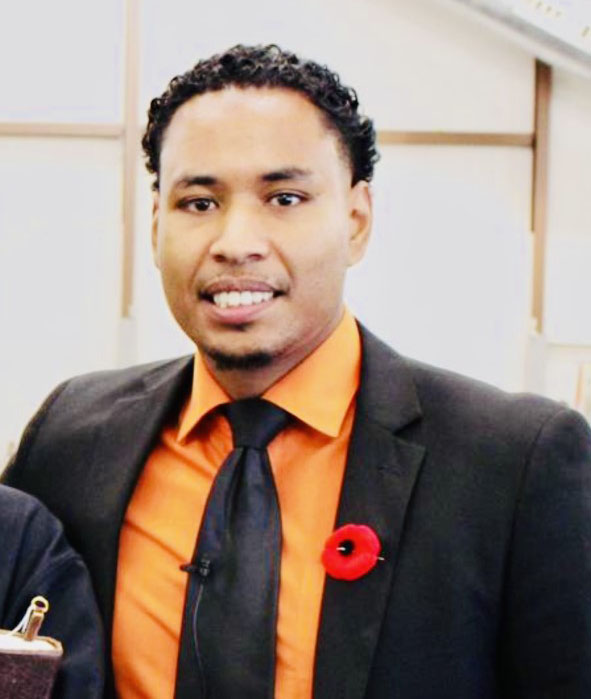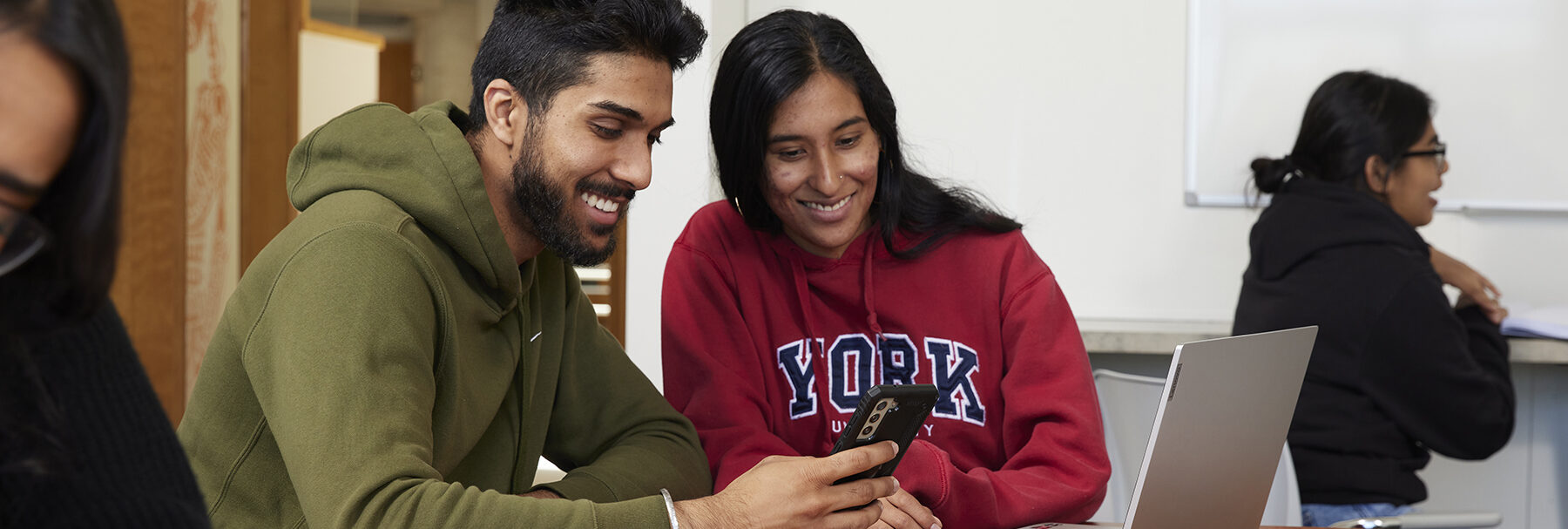By Elaine Smith
Psychology professors Julie Conder and Monique Herbert have their sights set on improving access, success, and equity in university experiences for marginalized and under-represented students.

(Photo credit for Hebert image: Sofia Kirk)
Conder, named the Faculty of Health’s inaugural Distinguished Fellow in Learning and Teaching Excellence in March 2023, is engaged in research that will result in a set of interactive learning modules for first-generation university students, while Herbert, an associate professor (teaching stream), served as adviser for a pilot CEWIL Canada (Co-operative Education and Work-Integrated Learning Canada) initiative to provide Black psychology students with summer opportunities to obtain career skills that will ensure they are competitive when applying for jobs or graduate programs. The pilot was spearheaded by the experiential education office for the Faculty.
“Both of our programs are about supporting marginalized and underrepresented students in gaining skills for the next phase of their lives,” Herbert said. “We are working from the bottom up, from the grassroots level. After hearing from students, we can determine what actionable pieces we can put in place to support them. We are trying to plant seeds and build a sustainable foundation that will endure even after we’re not involved.”
Conder is committed to improving outcomes for first-generation students, those whose parents and caregivers didn’t attend university. York has the highest population of such learners in Ontario, at about 30 per cent of its student body.
“I care deeply about investing in the first-generation student experience. I was a first-gen student myself and few resources existed for us at that time,” said Conder. “I have created a three-year plan to support students, starting with a Strengths, Weaknesses, Opportunities and Threats (SWOT) analysis to determine what the first-gen experience is like at York. In general, research shows that first-gen students are more likely to be racialized, financially insecure and have more family responsibilities. They are also more likely to be unaware of academic norms and culture and less likely to ask for help than students whose caregivers attended university.
“Once we determine their needs, we can create modules that address the soft skill sets that will benefit them.”
Herbert’s CEWIL-funded pilot project, Work Integrated Learning for Black Students in Psychology, offered in 2022, was driven by the vision to address the gap in representation of Black professionals in psychology and related fields. It provided summer field placements for Black undergraduate psychology students in their field of interest. Twelve students participated in the program, working in positions at a variety of health services organizations. In summer 2023, the opportunity was extended to include kinesiology and global health students.
“Many of these students are working multiple jobs and juggling them with their university requirements, trying to get skills they don’t even know they need,” said Herbert. “This pilot project offered opportunities for acquiring these skills and for helping them to understand where their degree can lead, that there are many different options.”
The pilot participants also received one-on-one mentorship from both York faculty members and staff, a real bonus for the students.
Jama Maxie, a final-year specialized honours psychology student, took part in the 2022 program and was appreciative of the placement opportunity.

“Going into psychology, I know I would face barriers that separated me from my peers,” he said, citing the challenges of getting into research labs during the COVID pandemic, and having an African name he worried wouldn’t necessarily put his curriculum vitae (CV) first in consideration. “The work-integrated experiences for Black students in psychology gave me the upper hand I so desperately needed at the time,” he said, as he ended up working over the summer in a research lab at St. Michael’s Hospital that aimed at reducing inequalities in HIV outcomes for Black Canadians. “After finishing the experience, I started to confidently apply to research labs because I now had a CV that included research-relevant skills,” he said. “The foot in the door I got from the work-integrated experience was just what I needed and gave me an equal opportunity to be just as successful as any other student in psychology.”
Conder, who mentored one of the CEWIL students, said, “I could see the student transformation from thinking they couldn’t do this to ‘I am doing this and if I have questions, there’s support for me.’”
A debrief and celebration session where students had the opportunity to discuss the teachings and learnings from their CEWIL experiences was held once the placements were completed. The event offered an opportunity for networking and allowed for suggestions about how students could incorporate their experiences into their CVs and cover letters.
Conder’s three-year project is in the research phase at present, with plans to employ innovative assessment strategies and create an e-learning Interactive Skills Hub and related resources in the Faculty of Health to increase equity for first-generation students. Her undergraduate thesis student Celina Lieu has taken on the role of research assistant to help Conder explore whether media examples of student success motivate first-generation students. Conder is evaluating existing resources for these students before creating skills modules to give them a helping hand as they begin considering placement and career opportunities.
“Having such a program for first-generation students will allow them to take this information with them wherever they go,” Conder said.
Lieu, a specialized honours psychology student, emphasized the importance of the work being done by Conder, a testimonial that might apply equally to Herbert’s CEWIL work.
“As a first-generation student myself, this work is important to me because many studies demonstrate the barriers that first-generation students face, and this work has the potential for implications that can combat that,” wrote Lieu in an email. “I connected to Dr. Conder’s work on first-generation students because I relate to it a lot and felt I could provide a student perspective in this research process. I also strongly believe in this line of research and in its ability to create support for first-generation university students.”


